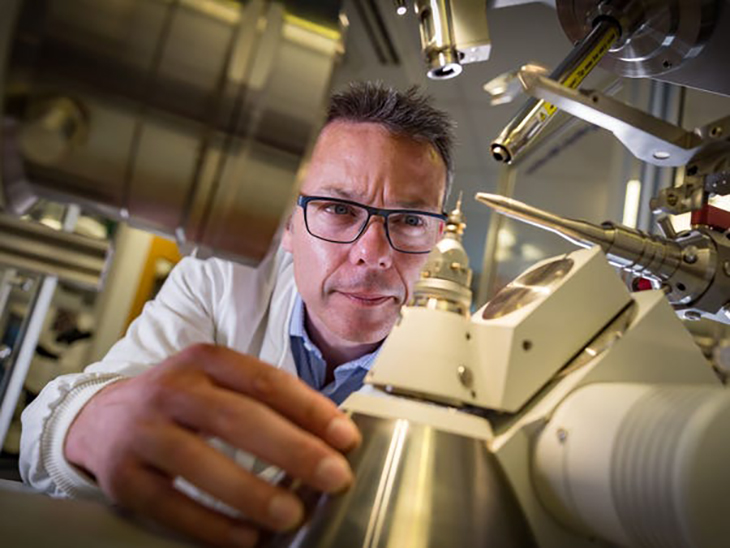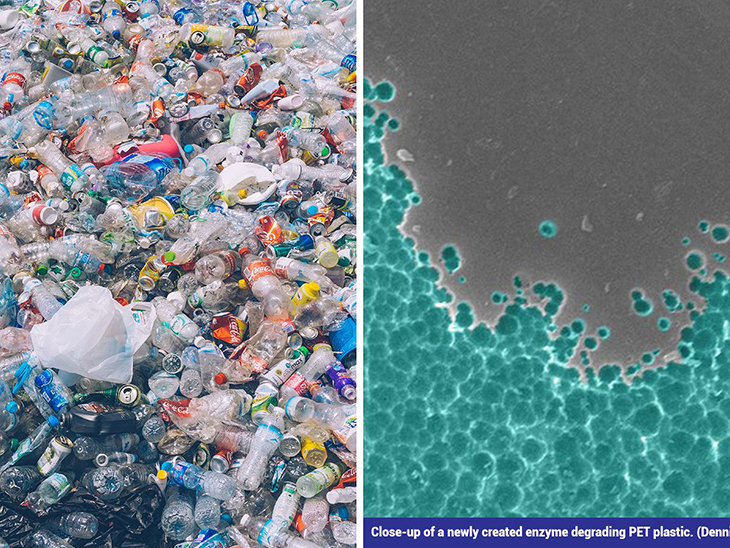
Plastics have become a problem in today’s world. Products are sold in plastic containers that most people don’t recycle. These end up in landfills, staying stagnant for decades. Breaking down the material isn’t as easy as biodegradable products.
Hence, scientists have been searching for ways to break down plastic, to ease the pile that’s been filling the landfills. They may have discovered the perfect compost for this – something that’s meant to answer the problem of waste accumulation.
Products such as PET plastic bottles, food containers, and lightweight wrap have been used for packaging. They do serve their purpose, but in the past few decades, these have also become a problem that the world has to deal with. When these aren’t recycled, these pile up and end up as unused trash. This is why scientists have searched high and low and rummaged through compost piles. With time and research, they finally discovered an enzyme that degrades the plastic quickly. Something that the world needs at this point in time.
The said enzyme is called PHL7. The German researchers found this in in Leipzig, in a heap of compost. This could make bio-PET recycling possible. More importantly, it could make it much faster than they once assumed. They recorded their findings and captured photos of it. The results are in a scientific journal made, and these have been an interesting find.
Enzymes are used in many ways. In nature, this is when bacteria decompose plant parts. It has been known that there are enzymes, the ones they call polyester-cleaving hydrolases, are also able to break down and degrade PET. For instance, the enzyme LCC was discovered in Japan in 2012. They saw that this was actually a very effective “plastic eater”.
The team that discovered enzyme PHL7 was led by Leipzig University researcher Dr. Christian Sonnendecker. They have been searching for previously undiscovered examples of these biological helpers. This was a part of the EU-funded projects called MIPLACE and ENZYCLE. They finally discovered the very enzyme they were searching for in the Südfriedhof cemetery hidden inside their compost sample.
They found a total of seven different enzymes. Out of all, PHL7 achieved results in the lab. The findings were above the average. In fact, it was twice as active as the former frontrunner in PET decomposition, which is LCC.
PET is the most widely produced plastic. They put this inside containers that were filled with an aqueous solution that was either PHL7 or LCC. They then measured the amount of plastic that was degraded after a specified amount of time so that they would be able to compare the both values.
The results of the study were published in ChemSusChem. The findings showed that within just 16 hours, PHL7 caused the PET to decompose by almost 90 percent. In the same amount of time given, LCC was able to achieve a mere 45 percent degradation. “So our enzyme is twice as active as the gold standard among polyester-cleaving hydrolases,” Sonnendecker shared.

Another example was when PHL7 broke down a plastic clam-shell container (punnet). This is oftentimes utilized for selling ready-to-eat food in supermarkets. The punnet degraded in under 24 hours. The researchers behind it also discovered that a single building block in the enzyme is the very thing behind this superior activity.
At the site where other previously known polyester-cleaving hydrolases had what was known as phenylalanine residue, PHL7 had a leucine.
Biological PET recycling comes with perks as well when compared to the traditional recycling methods. The latter relied mainly on thermal processes. This is the process of melting plastic waste using high temperatures. This requires a lot of energy. Plus, the plastic’s quality decreases every single time it goes through the process of recycling.
But when using enzymes, they only require an aqueous environment and a temperature of 65 to 70 degrees Celsius (140-160 F.) in order to break down PET. It also comes with another benefit. The process is able to break down the PET into its components—terephthalic acid and ethylene glycol. The components can then be reused to produce new PET. This brings about a closed cycle. Right now, unfortunately, biological PET recycling has only been tested by a pilot plant in France by Carbios.
A Process for Reusing Plastic that’s Environmentally-Friendly
Professor Wolfgang Zimmermann had played a key role in establishing research activity into enzyme-based technologies at Leipzig University. He says that enzyme will one day make an important contribution to the environment. “The biocatalyst now developed in Leipzig has been shown to be highly effective in the rapid decomposition of used PET food packaging and is suitable for use in an environmentally-friendly recycling process in which new plastic can be produced from the decomposition products,” he said in a statement.
Biological Recycling Should Not Be Costly
At this point in time, the researchers from Leipzig are searching for ideal industrial partners when it comes to the use PHL7 in advancing biological recycling. They are all convinced that the higher speed will be able to lower the expenses that often come with traditional recycling. Their goal in the next two to three years is to create a prototype that will be able to quantify the economic benefits of their rapid biological recycling process in a more precise fashion.
The scientists on Professor Jörg Matysik’s team at the Institute of Analytical Chemistry also want to clarify and further illuminate the structure and function of the enzymes with the use of NMR spectroscopy.
They are currently working on a new pretreatment method to solve a problem in biological recycling as well: PET decomposition with the use of enzymes just worked for so-called amorphous PET. These have been primary used in items such as fruit packaging. However, this hasn’t been used for plastic bottles made of PET with higher crystallinity just yet.
What are your thoughts? Please comment below and share this news!
True Activist / Report a typo


